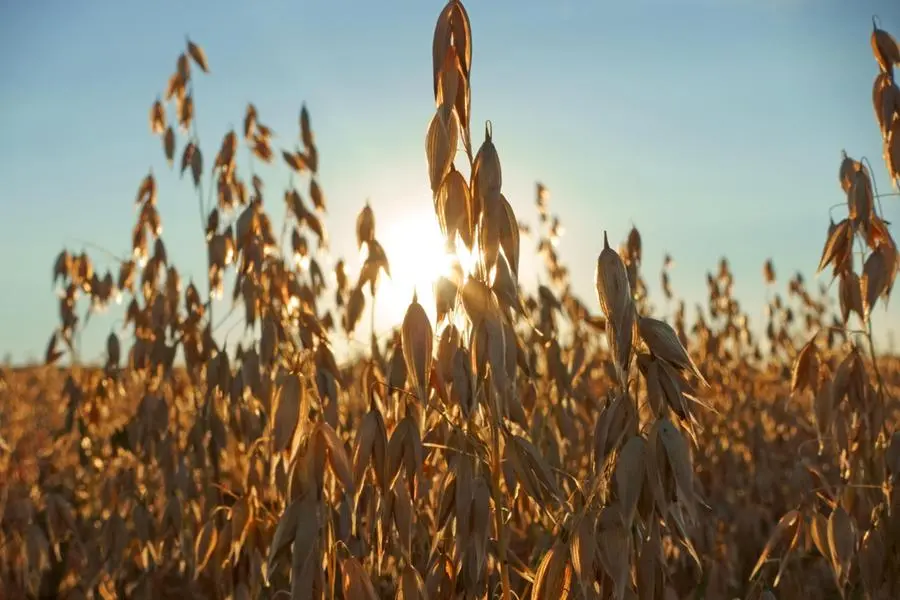PHOTO
There are proposals for the construction of four 56,400-tonne silo complexes at the Mvurwi, Kwekwe, Timber Mills and Mhangura depots. Upgrading and automating existing facilities at Banket and Lion’s Den also is under consideration. In a separate proposal, four silo locations of the same capacity will be built at the Masvingo, Lupane, Raffingora and Bindura depots.
The Strategic Grain Reserve (SGR) has a storage capacity of 500,000 tonnes, and the government intends to raise it to 1.5 million tonnes. Zimbabwe, a landlocked nation of 16 million people in southern Africa, currently has 12 silo plant sites with a total holding capacity of 751,000 tonnes.
Zimbabwe achieved a record wheat harvest of over 375,000 tonnes in 2022. GMB also can store bagged maize and other grains under canvas, as it has done in the past. Besides maize, there are high expectations of a large harvest of traditional grains, the government said.
The GMB is the country’s leading grain trade and marketing company and was established in 1931 as the Maize Control Board. It’s mission is to ensure national food security through the efficient and sustainable management of the Strategic Grain Reserve.
“As we march toward Vision 2030 agriculturally, with one bumper harvest after the other, silo storage expansion is a requirement,” John Basera, permanent secretary of Lands, Agriculture, Fisheries, Water and Rural Development, told The Sunday Mail. “To achieve this level of storage capacity, GMB would need to partner financiers under government-to-government schemes to provide additional storage space of at least 750,000 tonnes.
“Through government policy, which is conducive for direct foreign investment, good bilateral relations have brought more deals on board, which are now at an advanced stage of completion.”
Edwin Zimunga, chief director for Agricultural Engineering, Mechanization and Soil Conservation, said the government is working with Aftrade of Belarus and the Bühler/African Continental Free Trade Area (AfCFTA) Project Concept.
“To date, Aftrade brought various technical teams to collaborate with local expertise to assess and carry out gap analysis on various GMB depots,” Zimunga said. “The proposal covers construction of four 56,400-tonne silo complexes at the Mvurwi, Kwekwe, Timber Mills and Mhangura depots.”
The construction will include high-capacity grain driers; grading and grain conveyance systems; bagging-off equipment, laboratory, storage sheds and cleaners.
“In addition, an upgrade and automation of existing silo plants in Banket and Lion’s Den is included,” Zimunga said. “The total budget costs are $112 million under this phase. Implementation takes three years until commissioning.”
The Bühler/AfCFTA team has made four technical visits to the GMB. In the proposal already submitted to the ministry, the construction of four 56,400-tonne silo complexes is proposed at the Masvingo, Lupane, Raffingora and Bindura depots, with facilities similar to the Belarus deal.
“In addition, upgrades and automation of existing silo plants in Chegutu and Concession are quoted,” he said. “The total project cost is $162 million under this phase. Implementation takes two-and-a-half years until commissioning.”
He noted that should these two projects be completed, Zimbabwe will have added 451,200 tonnes of storage to GMB silo capacity over three years toward fulfilling its 750,000 tonnes goal.
Tafadzwa Musarara, national chairperson, Grain Millers Association of Zimbabwe, commended the silo expansion project: “This project was long overdue. Inasmuch as we want to have enough food for our consumption and export, there is need for a massive expansion for reserves.
© Copyright The Zimbabwean. All rights reserved. Provided by SyndiGate Media Inc. (Syndigate.info).





















